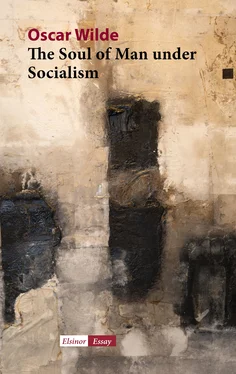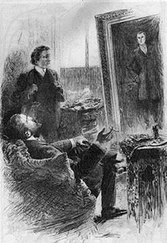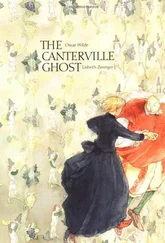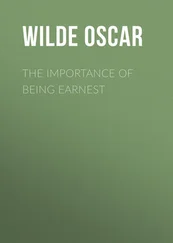Oscar Wilde
The Soul of Man under Socialism
London
Arthur Humphreys
1900
Second Impression
Edited and annotated with a preface by
Jörg W. Rademacher
and a postface by
Michael Szczekalla

Preface (Jörg W. Rademacher)
The Soul of Man under Socialism
Aphorisms about Literature
Bibliography
Notes
Acknowledgements
Postface: Oscar Wilde, “The Soul of Man under Socialism” (Michael Szczekalla)
Bibliography
Notes
Index of Names and of Terms
Brief Life of Oscar Wilde
“While […] Wilde […] in terms of the subject of [“The Soul of Man under Socialism”] remains the ‘enfant de mon siècle’, as he writes in ‘De Profundis’, his essay in terms of intellectual and linguistic precision exceeds any other vision of the future developed by writers of his own time.” 1
This is only one mode of pointing out the dialectics of personal and political orientation inherent in “The Soul of Man under Socialism”. There are personal & literary, political & historical approaches as well as those touching on philosophy and the history of ideas. The latter are shown by Michael Szczekalla in the postface. The former are represented in the preface and in the annotations to the text. 2 In one of his maxims, published posthumously, Johann Wolfgang Goethe had written: “Any great idea entering the world as a gospel becomes an annoyance for the faltering pedantic people, and for the much-cultivated man who had all too easily been cultivated it becomes a folly.” 3 Speaking retrospectively, Goethe would have needed only very few words to point out all the glamour and misery of a doctrine like socialism.
All the glamour and misery of Oscar Wilde are not only but also summed up in the first five months of 1895 when he rose to the summit of his literary fame as author of two comedies premiered in January/February before experiencing his fall from grace to become a pariah in the court of law from March through May the same year.
This tragedy, however, is rooted in the events of 1891. Whoever seeks orientation in the life and works of Oscar Wilde is well advised to consider the four books published in that twelve-month: 4
in April, it was The Picture of Dorian Gray in book form and consisting of twenty chapters, revised, enlarged, and subjected to self-censorship by Wilde after Lippincott’s Monthly Magazine , based in America, had issued the novel containing thirteen chapters in June 1890;
in May, it was Intentions , a volume with four literary essays;
in July, it was Lord Arthur Savile’s Crime and other Stories ;
and in November, it was The House of Pomegranates .
The last two volumes included stories or tales that, like the theoretical essays, had earlier been published in magazines. In 1891, it seems, that Wilde established himself as a writer of books.
In fact, this refers to his name as a kind of brand in the book market of the day rather than to any financial rewards. As it happens, Wilde still needed other sources of income such as fees earned for publishing in magazines and, more importantly, royalties resulting from the performances of his plays which he, however, would not receive until after his comedy of manners Lady Windermere’s Fan had had its first night in 1892.
It is in such a magazine, The Fortnightly Review (1865-1934), that is, edited by Frank Harris (1856-1931), a friend and later biographer of Wilde’s, that two seminal texts are published in February/March 1891: the second being what soon became the “Preface” to The Picture of Dorian Gray in book form, consisting only of aphorisms, and which winds up this volume. Before that, however, an essay had been issued with the suggestive title “The Soul of Man under Socialism”. 5 This essay also includes many an aphorism, showing that Wilde, who was a conversationalist and causeur, sought to strive for and keep a reputation as a professional word-smith in writing as well. Yet just as when a student in Dublin and Oxford where he polished his image of a socialite, he did not want it to be publicly known in London for how long and how assiduously he was wont to polish his works.
Without doubt, such a description applies to this, the only essay Wilde wrote with a direct political appeal. Writing this preface in English after publishing a new translation of the essay into German, I can profit from the experience of having had to polish my German version in the context of a bilingual calendar for the year 2018. Ulrich Hoepfner, whose collage work accompanied a selection of aphorisms from the essay, by the very choice of some short texts obliged me to return to the already completed translation of the essay and replace certain passages by a version arrived at by working in the context of collage and text.
This is how I was able to experience another look over Wilde’s shoulder. This feat, with regard to a work like The Picture of Dorian Gray , can be experienced directly by looking at manuscript and typescript, something which quite a few editors have been able to point out: Indeed, Wilde was right in admitting that writing caused him pain. This can minutely be proved by looking at papers preserved of his creation process. In their absence, the pains undergone by the translator to create a German text of almost the same length as the original but also preserving the rhythm of the latter are more than just an indication of what kind of exertion was Wilde’s own.
This insight is all the more important for the simple reason that “The Soul of Man under Socialism” is all but a historical relic from the 19th century begging to be revived in the 21st century. On the contrary, the text is unparalleled in terms of its topicality – both with regard to the culture it came from – the United Kingdom faced with hardly predictable sociopolitical changes both then and now 6 – and with regard to the culture the essay was translated for and whose background also informs the text of this preface in English – Germany which in economic and political terms seems as much in danger now as it was in Oscar Wilde’s lifetime.
In the Second German Empire that lasted from 1871 through 1918 when the Kaiser abdicated only two days before the Armistice, Wilde’s writings enjoyed a surprisingly lively reception immediately after he had been sentenced and banned in the United Kingdom as well as after his death in 1900. This seems all the more astonishing since he was so diversely received in a country where homosexuality was and would remain a crime for many decades to come even after the legislators of German Bundestag had taken off the edge of Paragraph 175 of the Criminal Law Code, at long last abolished as late as in 1994. 7
Since Oscar Wilde had a great public presence in the United States, too, he was used to looking across the Atlantic with one eye. This allows us today, schooled as we are by Wilde’s sharp eye, to perceive how well he had grasped and described the situation in America. In his lifetime, this essay did not at first provoke any public reactions, and when it was privately published and “not for sale” ( “hors commerce” ) in book form on 30th May 1895, only five days, that is, after Wilde had been sentenced to two years in gaol with hard labour, it was entitled The Soul of Man only to be re-issued complete with a preface by Robert Ross, Wilde’s friend and literary executor, in the edition of 1912. 8
Читать дальше













